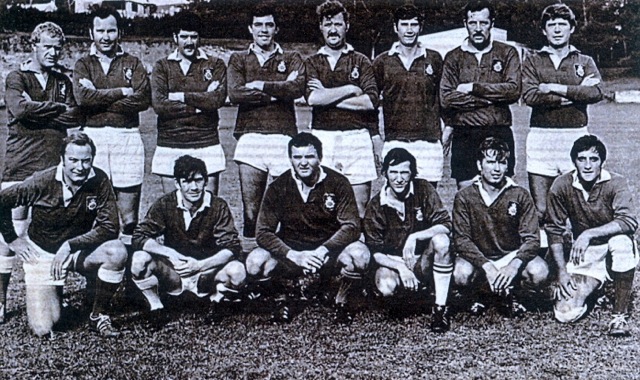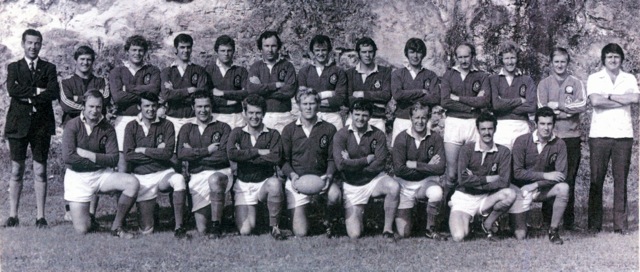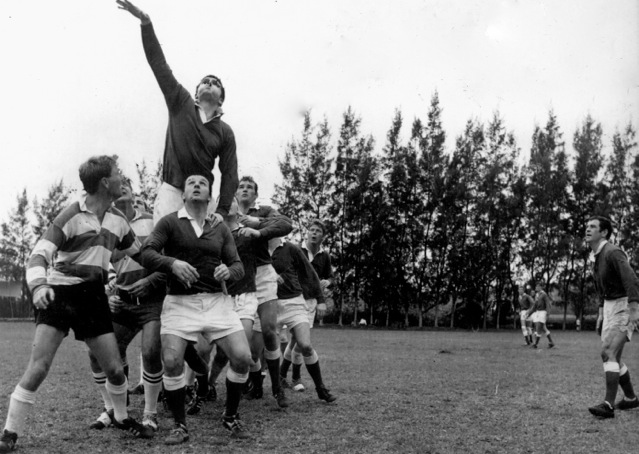Bobbies in the Birdcage
The “Bobby in the Birdcage” on Front Street in Hamilton was said for many years to be the most photographed police officer in the World, and was without doubt a popular duty for young single constables during College Weeks!
We have a number of photos of constables directing traffic at the junction of Front Street and Queen Street long before the birdcage existed as can be seen in the first photographs below. It's more then likely that constables have been directing traffic there since at least the early 1950's as shown in the photo of young constable Douglas "Red" Hebberd who joined the Bermuda Police Force in 1949.
Another young constable, then P.C. Hubert Simmons, joined the Police Force in 1950 and quickly gained an international reputation for his unique style of directing traffic at Heyl's Corner as can be seen in this article published in the Royal Gazette on 5th August 1951. Hubert 's photos were flashed around the world and tourists would stop and marvel at his balletic performances. Unfortunately, we don't as yet have any photographs of Hubert in action other than this image in the Royal Gazette even though we are aware that he was also filmed. We are making every effort to locate photos or film of Hubert in action and would greatly appreciate any assistance in this regard. CLICK HERE for the Hall of Fame article on Hubert Simmons on our website.
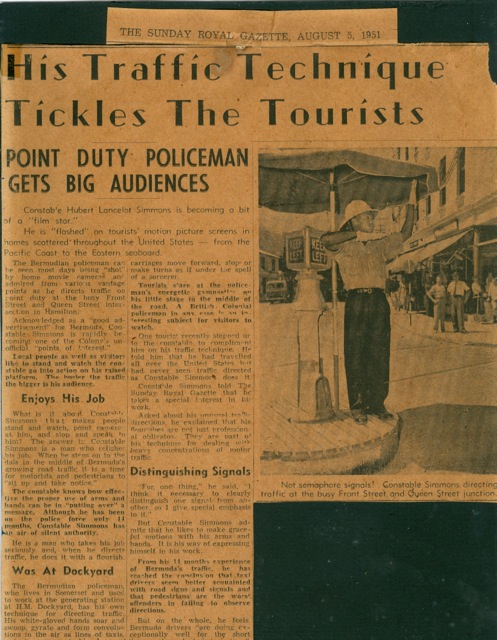
We were aware that the then Hamilton City Engineer, Geoffrey "Dickie" Bird, came up with the idea of providing a fully raised platform with a cover over it for constables on point duty. We were not sure exactly when the "birdcage" was installed so we contacted Dickie's wife, Jean, who recalls that it was his idea to build a structure that would give both shade and shelter to the police officers directing traffic at Heyl's Corner. Jean says that once he had designed the structure it took just a couple of weeks at most to construct. We were later able to confirm that it was installed in 1962.
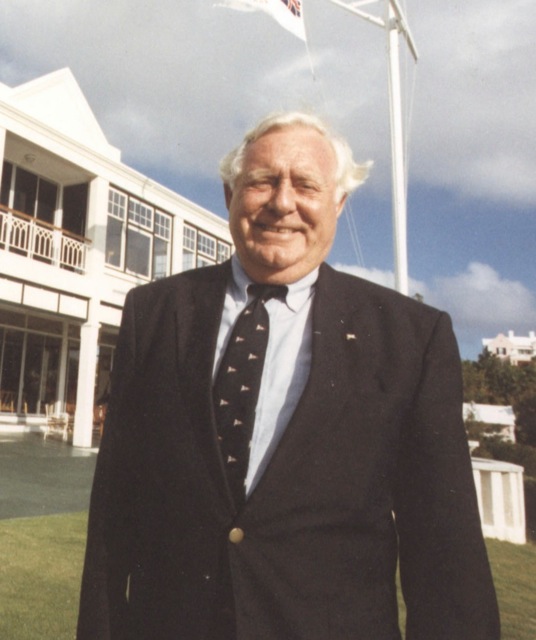
This was completed in August 1962, and could there ever have been any doubt about what it should be called! Naturally, it immediately became known as the "birdcage", and all of us who have performed traffic duty in it are eternally grateful to Dickie Bird because it made directing traffic there so much more comfortable, especially during College Weeks!
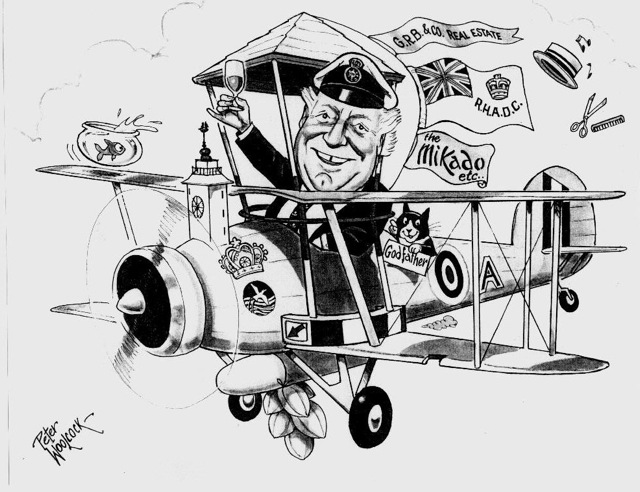
It was badly damaged some time later and a strengthened replacement took several months to build but was no doubt much safer for the constable on duty there. Since then it has been upgraded but its shape and name remain the same. Sadly, this icon of Bermuda is hardly used these days despite the fact that it was an extremely popular tourist attraction for decades.
However we know that literally hundreds of Bermuda police officers will have fond memories of directing traffic in the birdcage while being photographed, and we are hoping that many those officers will have photos in their own collections and will send them to us.
We are starting off with those we already have in our collection, in no particular order. If you have one of your own please send it to us at info@expobermuda.com together with information about when it was taken.
EDITORS NOTE - We recently discovered the photo immediately below which was posted on the "Old Bermuda; Our Island, Our History" website in February 2023. It was posted by Gerri Crockwell and depicts a police officer standing at Heyl's Corner chatting with a young lady with her pedal cycle and a baby sitting in her cycle basket. There appears to be another police officer walking away from the corner, and as you can see, the only vehicles in the photo are pedal cycles and a horse carriage. It is dated circa 1940's - 1950's. There is a comment on the "Old Bermuda" website from Wendi Fiedler-Nixon who is the daughter of the Late former Superintendent Joseph Nixon, who believes the officer next to the "Keep Left" sign could well be her father because of hos height and the way he is standing. Joe Nixon joined the Bermuda Police in July 1946 and served until his retirement in July 1974. Our records indicate that his first posting as a young constable was to Hamilton Police Station. It's possible that this photo of Heyl's Corner may have been taken just before motor cars were permitted on the Island, but in any event it is certainly the oldest photograph we have so far of a "Bobby at Heyl's Corner"!
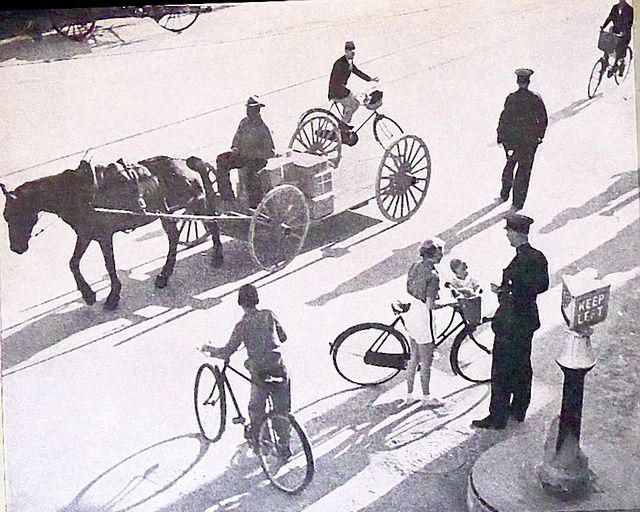 A "Bobby" standing at Heyl's Corner dated circa 1940's - 1950''s
A "Bobby" standing at Heyl's Corner dated circa 1940's - 1950''s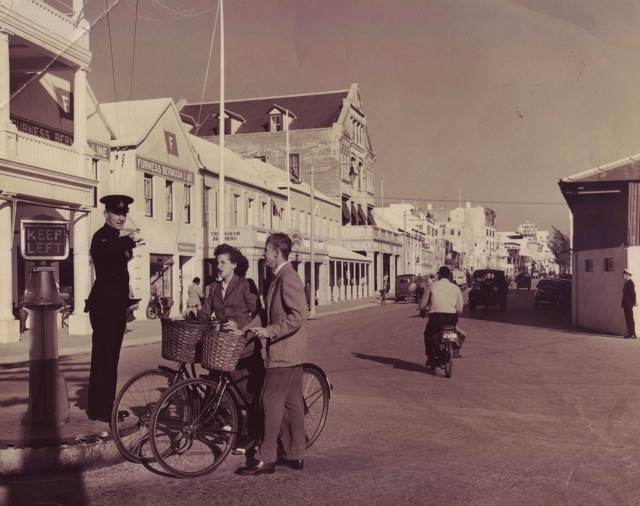
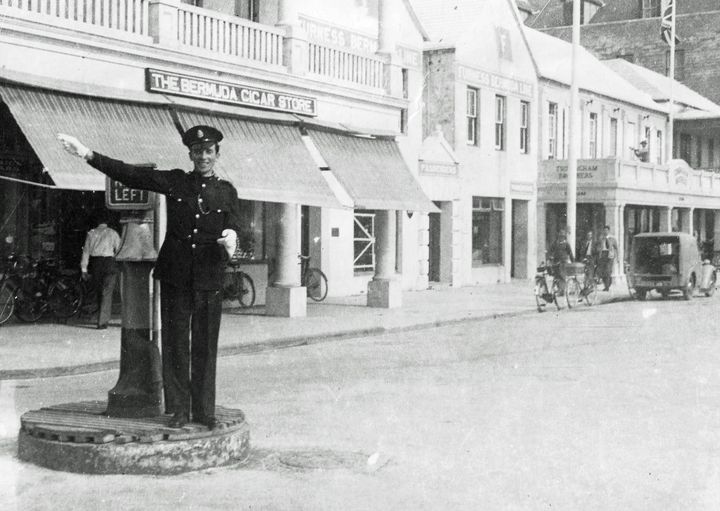
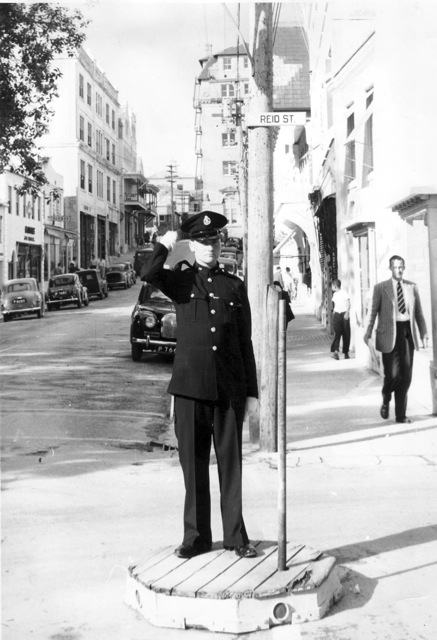 P.C. John Francis (Ian "Crash") Kane directing traffic at the
P.C. John Francis (Ian "Crash") Kane directing traffic at the 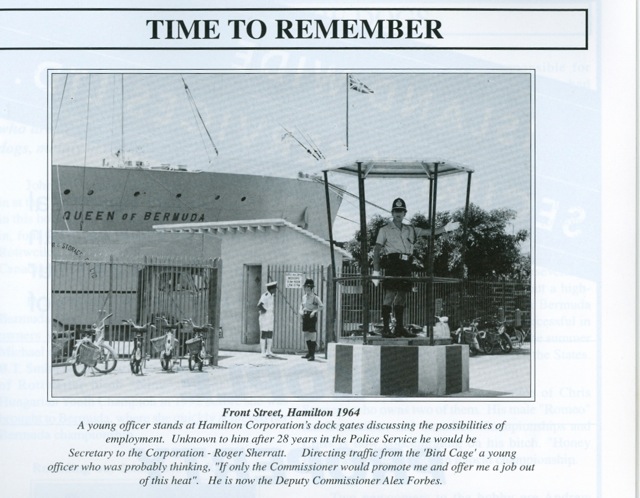 Front Street, Hamilton 1964. P.C. Alex Forbes directs traffic in the birdcage
Front Street, Hamilton 1964. P.C. Alex Forbes directs traffic in the birdcage 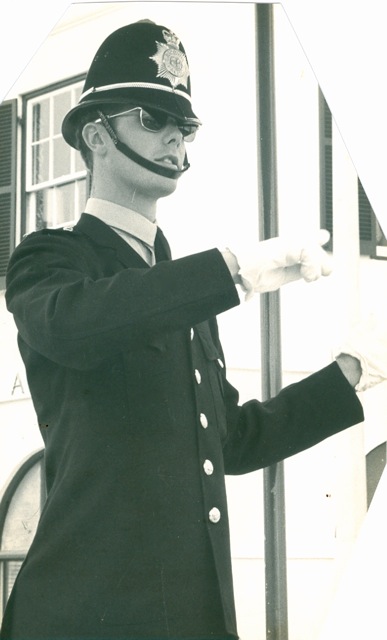
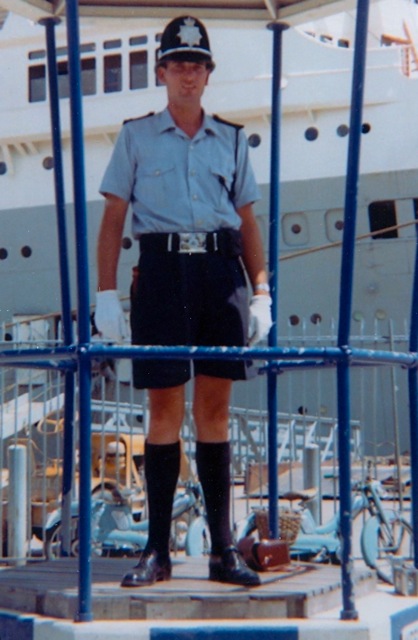 P.C. Terry Heathcoate in the birdcage at Heyl's Corner circa 1965.
P.C. Terry Heathcoate in the birdcage at Heyl's Corner circa 1965.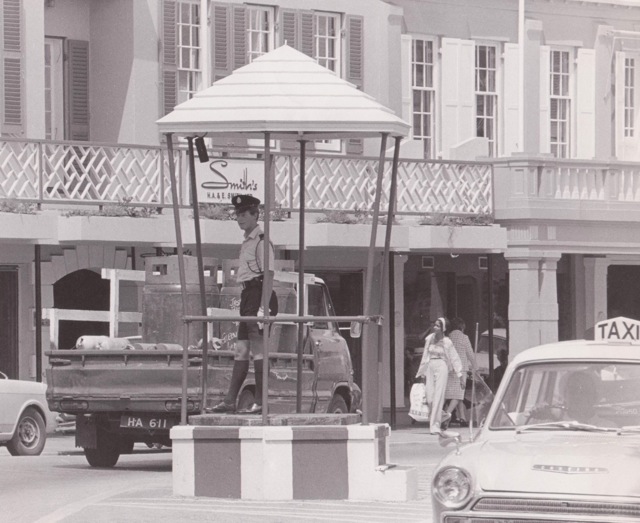
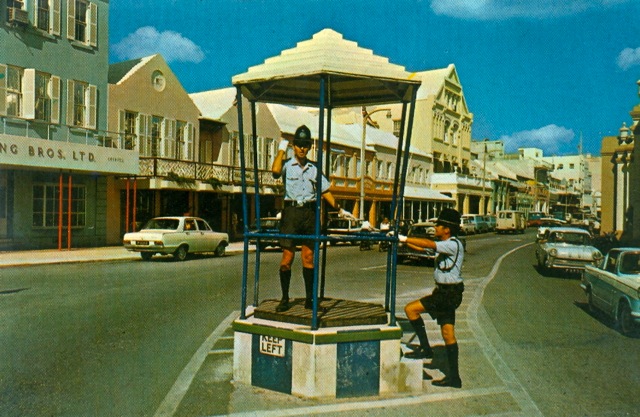
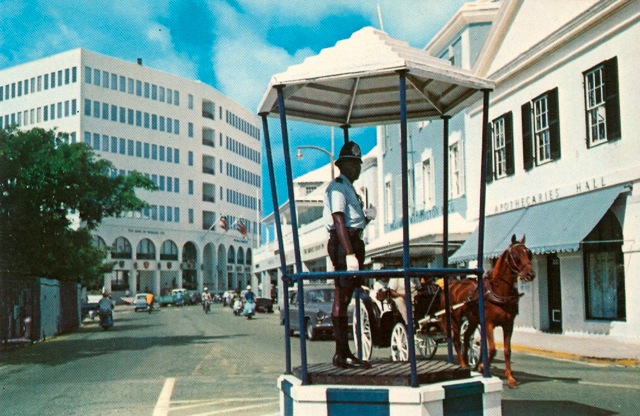
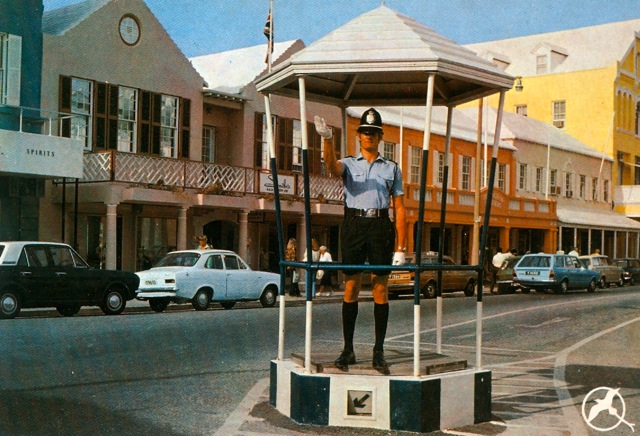
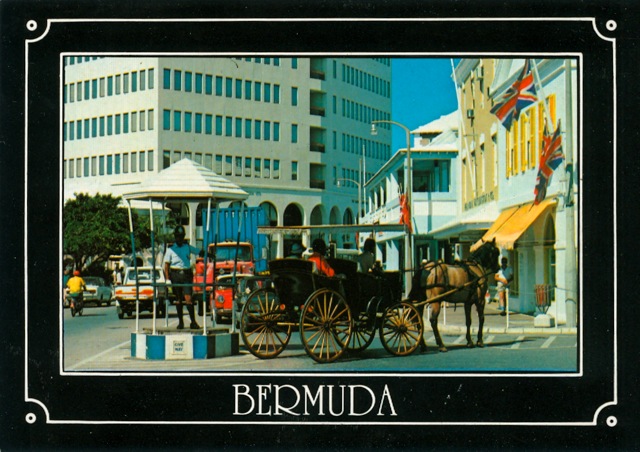
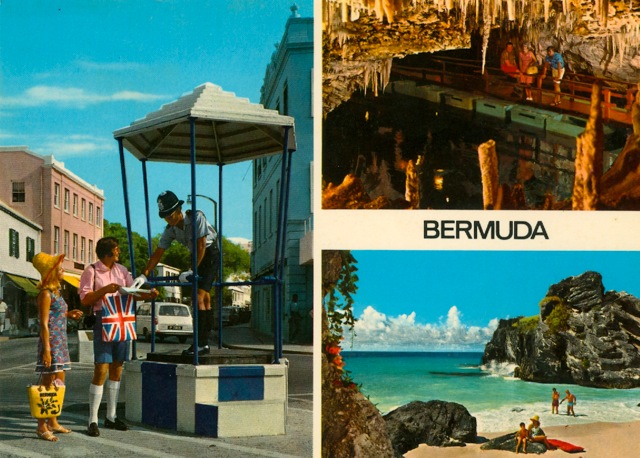
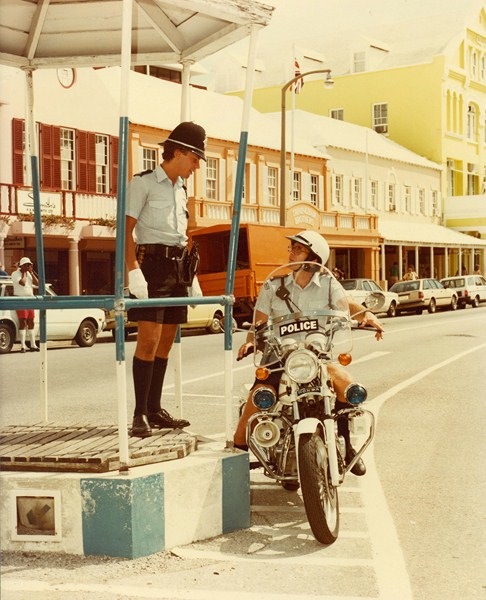
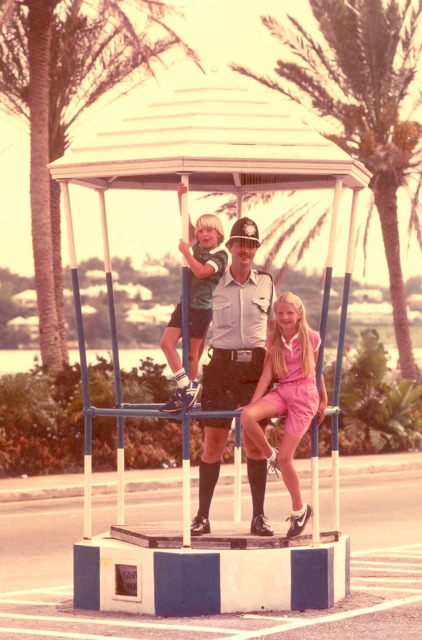
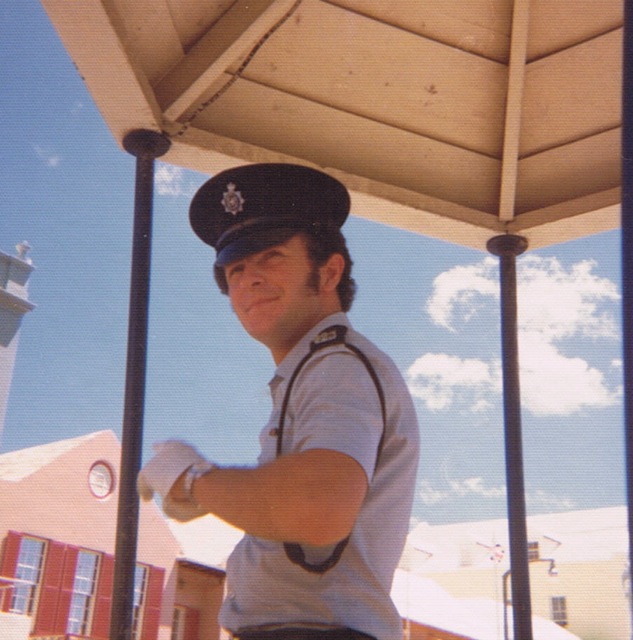
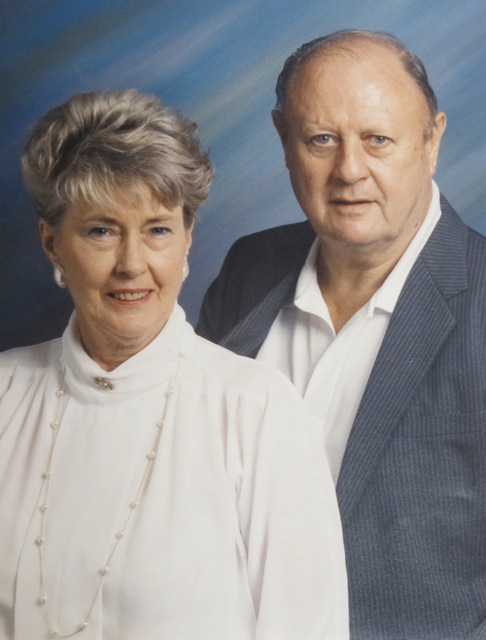
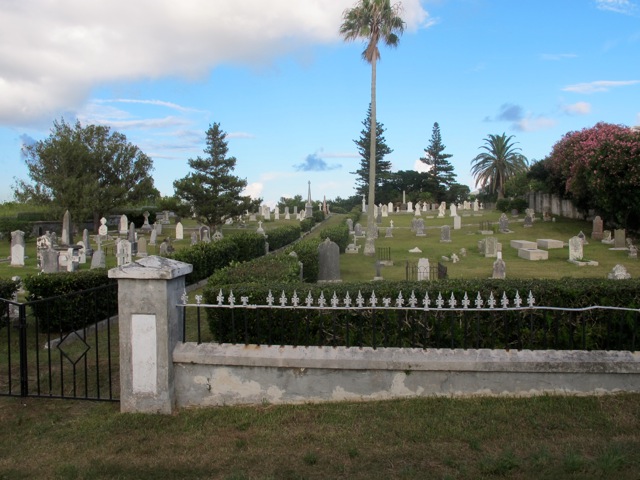
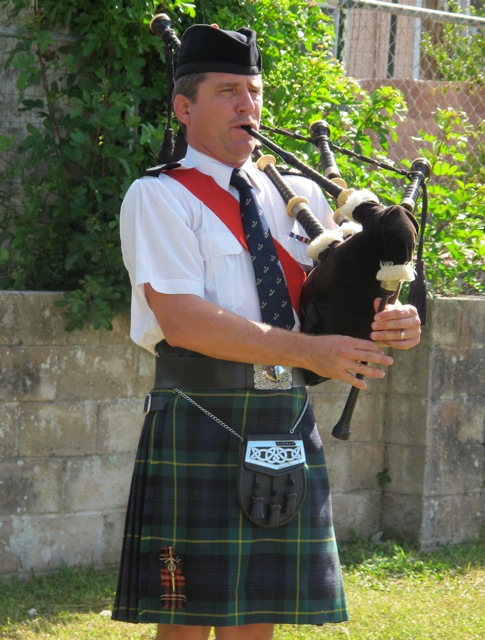 Piper- Adrian Stone
Piper- Adrian Stone
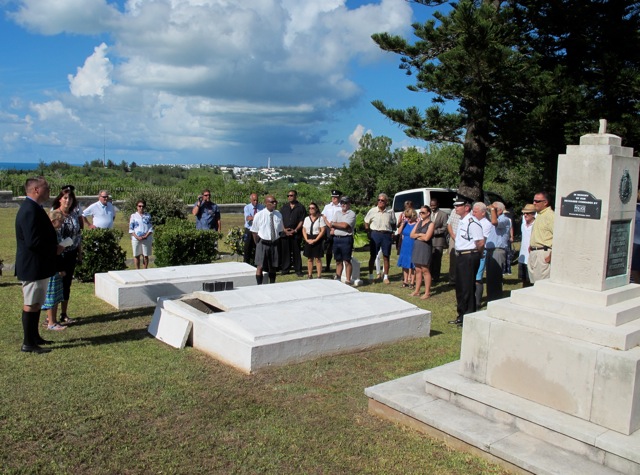
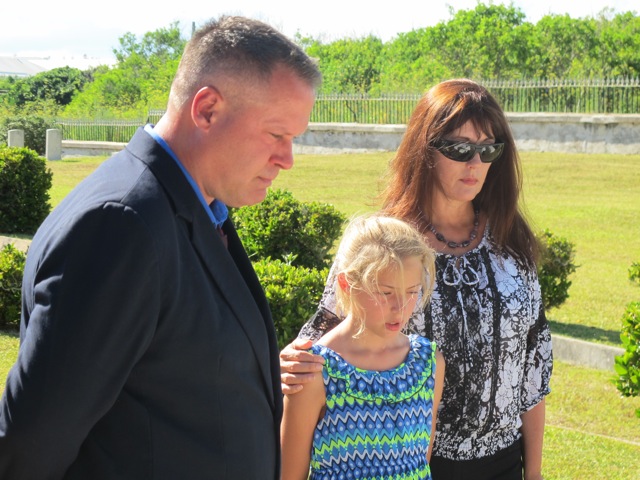
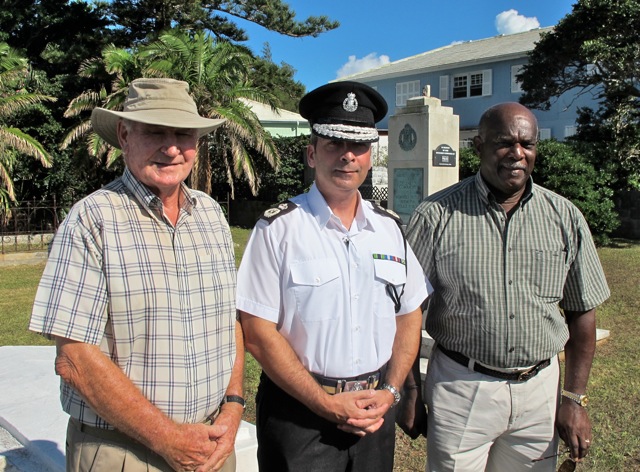
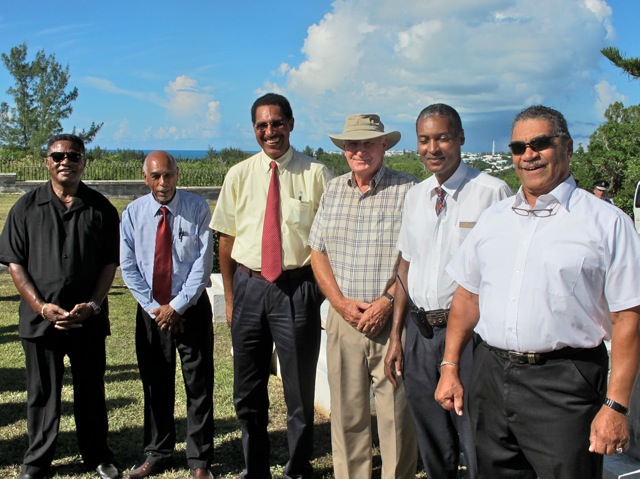
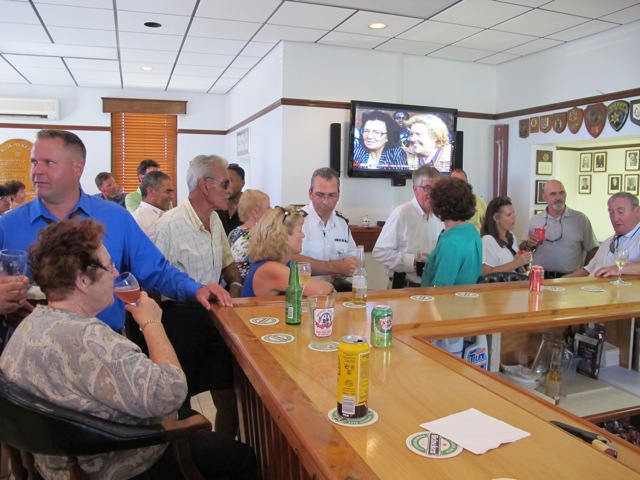
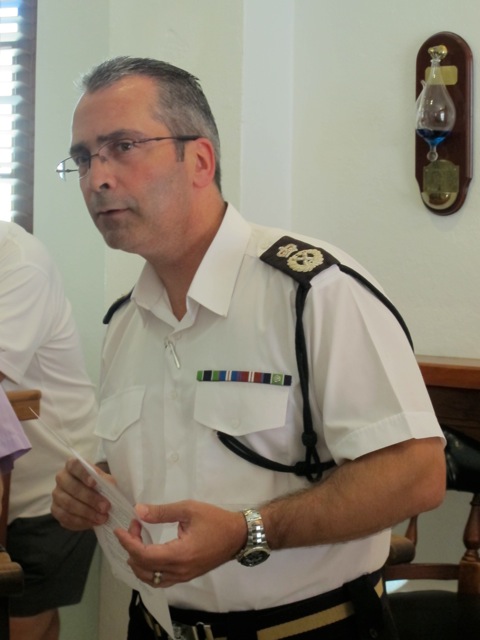
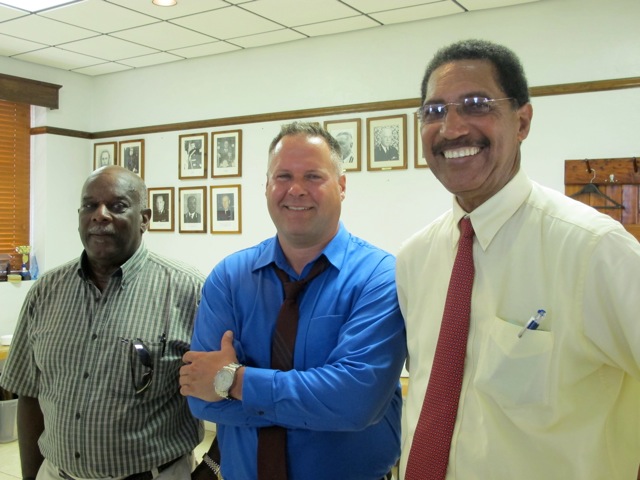

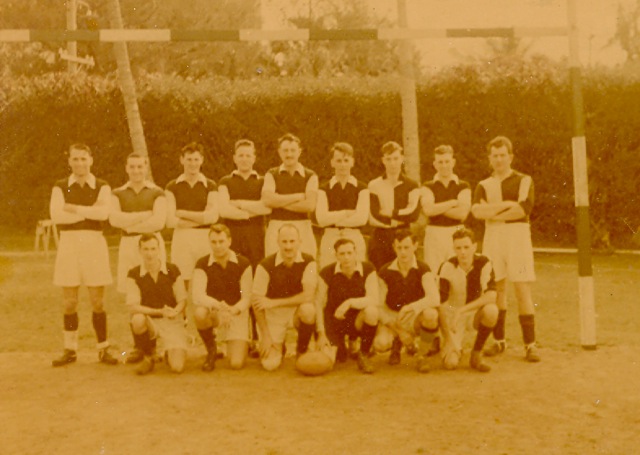
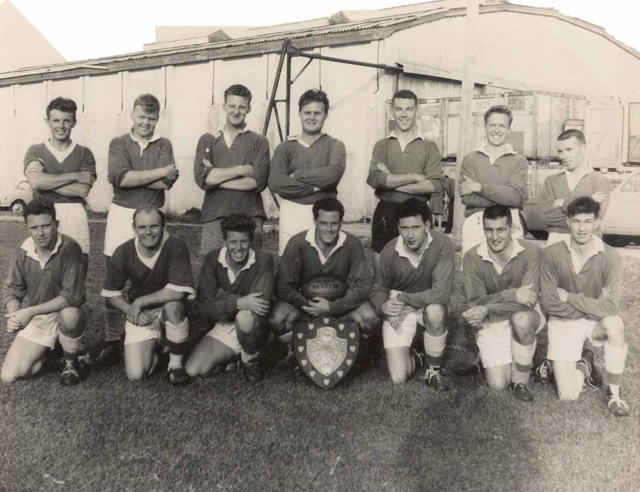
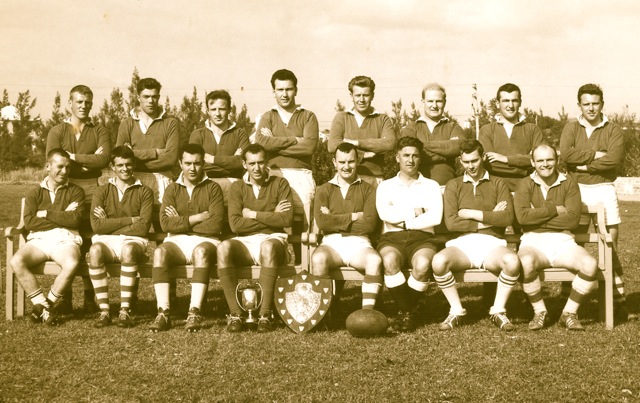
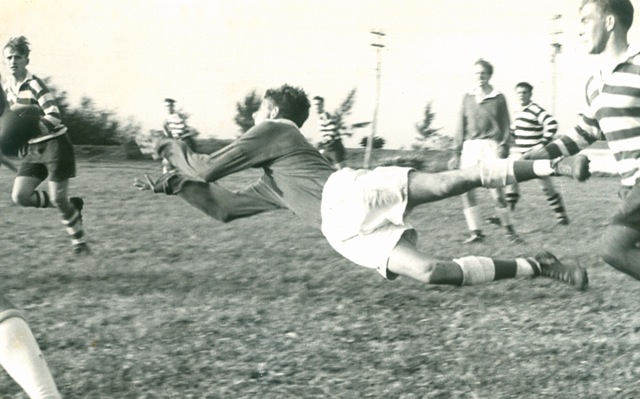
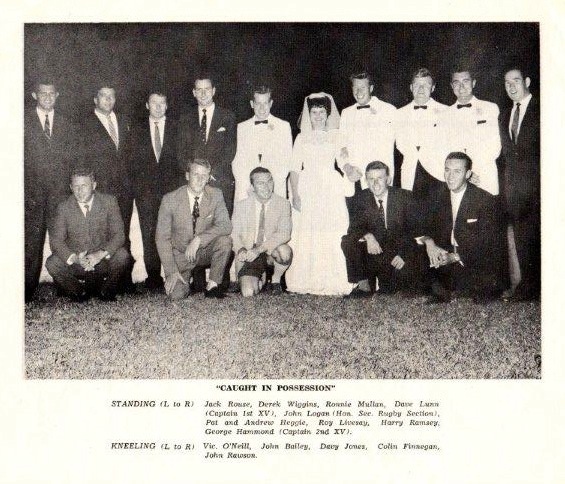
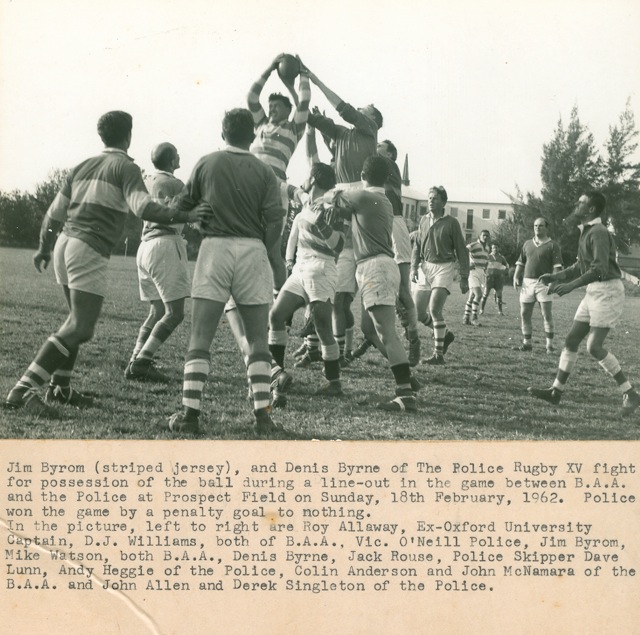
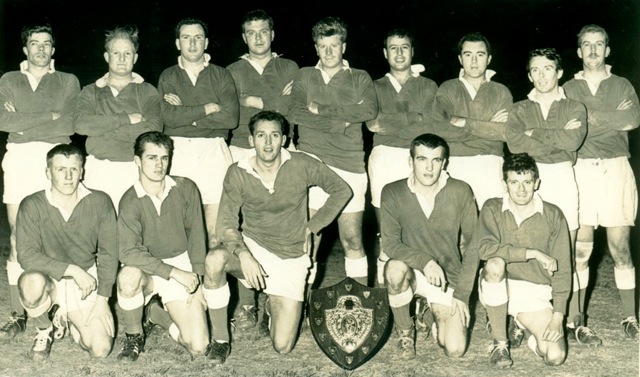
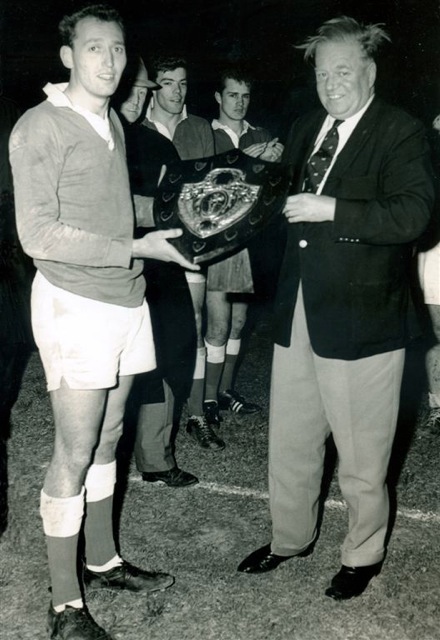 Captain of the Police Rugby Team, John Rawson, receives the Nicol Shield
Captain of the Police Rugby Team, John Rawson, receives the Nicol Shield 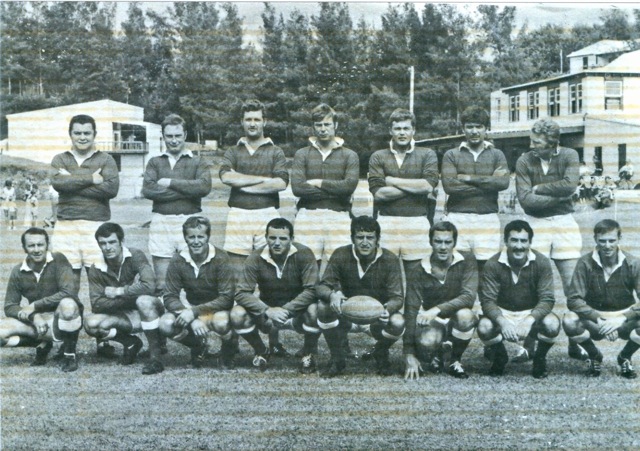 Photo 9 - Police Team mid-1960's
Photo 9 - Police Team mid-1960's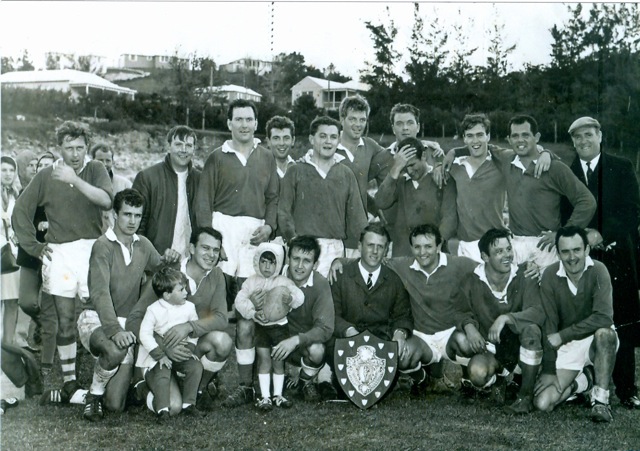
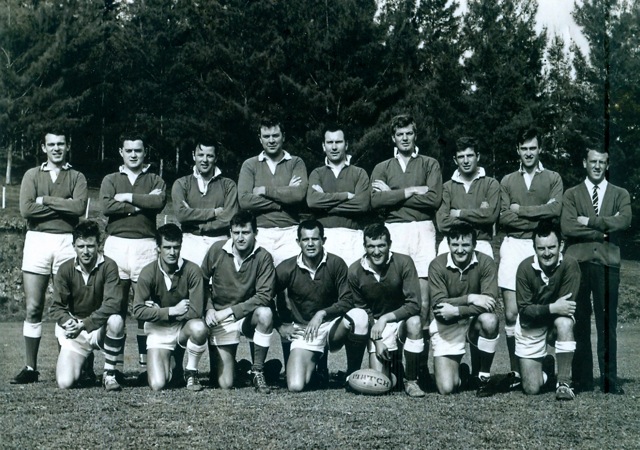
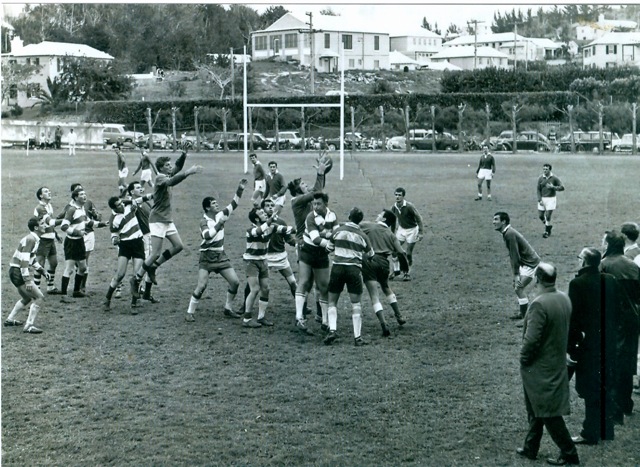
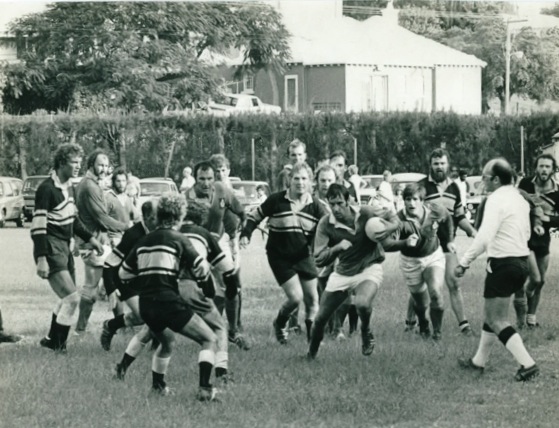

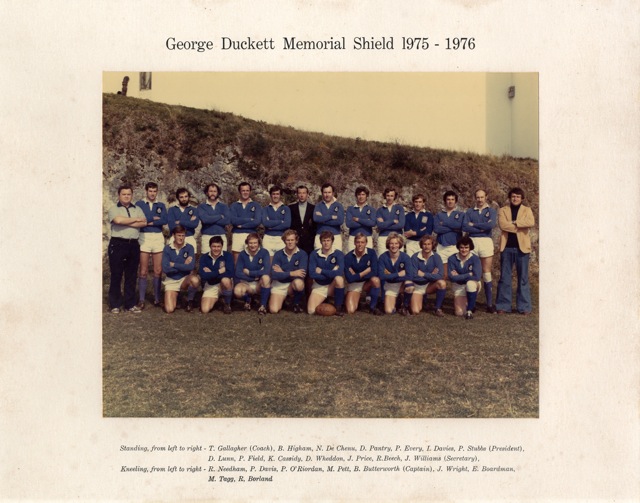
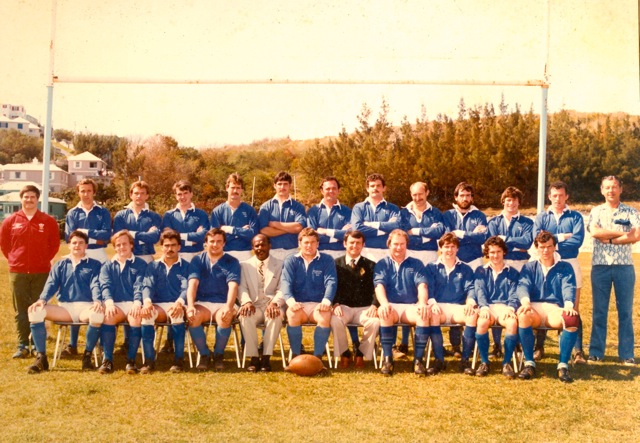
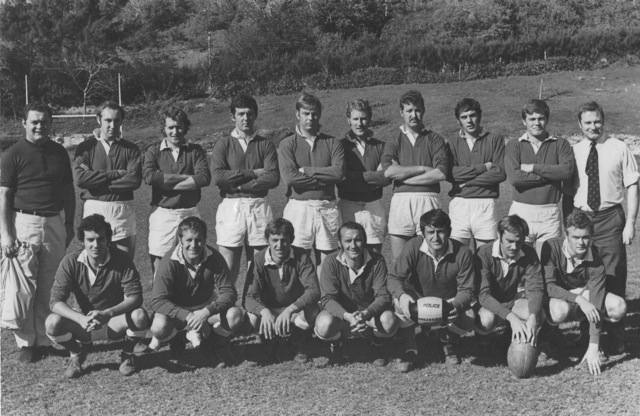
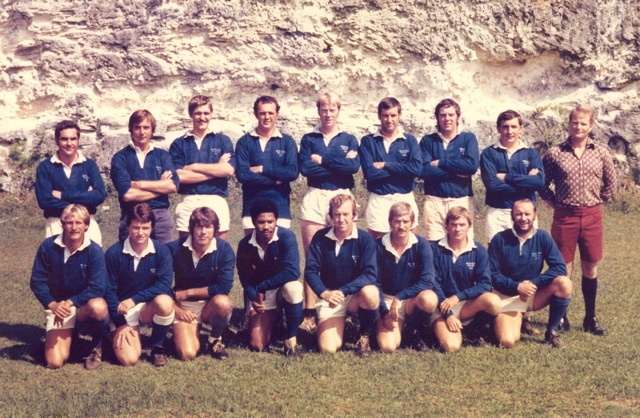
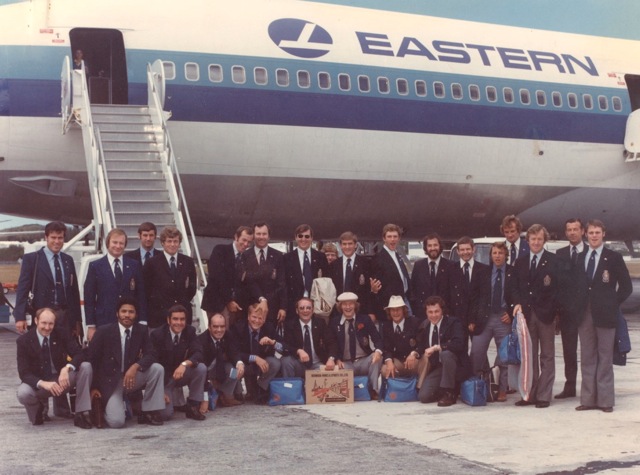
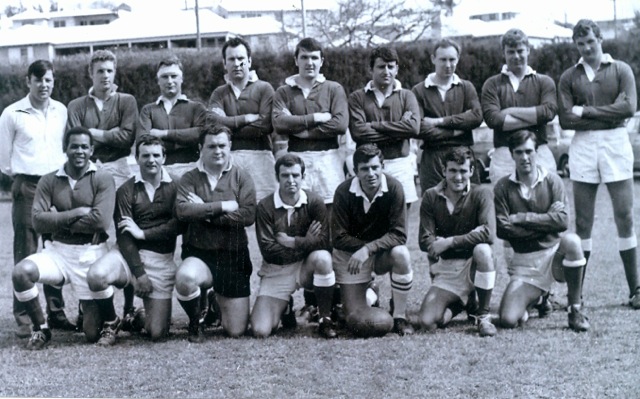 Photo 21
Photo 21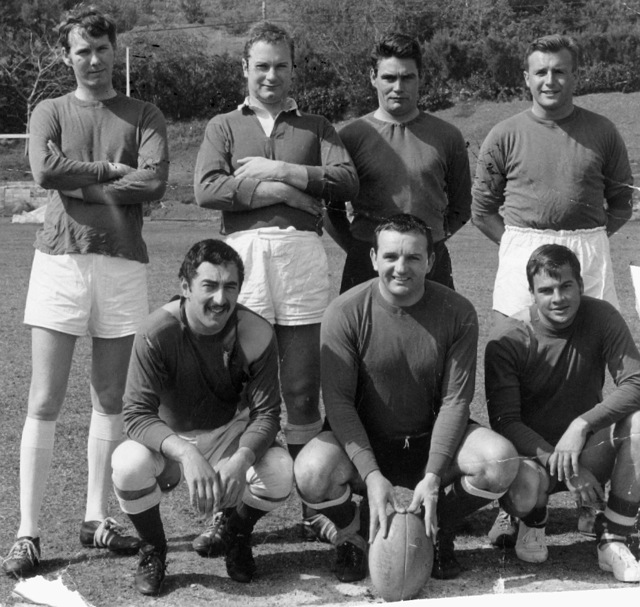 Photo 22
Photo 22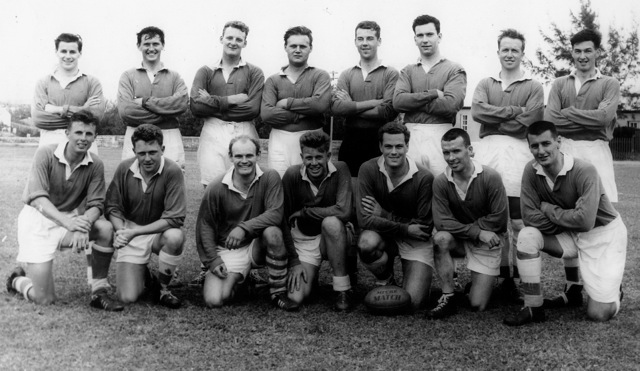 Photo 23
Photo 23